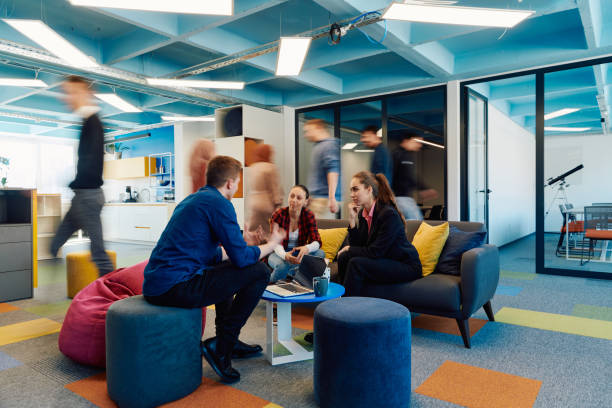Introduction
As global headlines focus on companies mandating a return to the office, Irish based orgnisations are taking more of a balanced approach. Hybrid-first models, evolving legislation, and shifting employee expectations are shaping a uniquely Irish response to the future of work.
1. Hybrid is the New Normal
Most Irish organisations now favour a hybrid working model, typically two to three days in the office each week.
Recruitment trends show that:
Hybrid roles remain in demand
Fully remote options are declining
Flexibility continues to be a key draw for talent
Unlike other markets, Ireland has largely avoided strict mandates, instead focusing on trust and autonomy.
2. Gen Z is Leading the Return
It is younger professionals, particularly Gen Z (1997 – 2021) who are showing the strongest return-to-office engagement.
Key reasons include:
Desire for in-person learning and mentoring
Need for social interaction
Preference for structured development opportunities
For employers, this presents an opportunity to reposition the office as a place for growth and connection.
3. It is About Experience, Not Just Attendance
In a recent survey we found that 82% of marketers would be open to returning to the office more often – but only if the experience improves.
Top incentives include:
Subsidised meals
High-speed internet
Access to mentoring and wellbeing programmes
More organised / more effective collaboration with peers
Comfortable, well-designed workspaces
The office must now compete with home in terms of comfort, productivity and convenience.
4. Legislative Changes Employers Must Note
The Work-Life Balance and Miscellaneous Provisions Act 2023 introduced new legal rights for employees to request remote and flexible work.
Employers must:
Respond within four weeks
Follow a clear, fair process
Be mindful of WRC enforcement, as seen in recent rulings
This adds a new layer of accountability for HR and leadership teams.
5. Quietly Encouraging Office Presence
Rather than issuing mandates, some Irish companies are using “hushed hybrid” strategies. These include:
Informally tracking attendance
Setting team anchor days
Encouraging presence through culture and leadership example
Suggesting 50% office presence, but allowing professionals manage their onsite schedule
This softer approach aims to maintain collaboration without damaging morale.
Irish organisations are finding a middle ground. To succeed in 2025 and beyond, employers must:
Embrace flexible work as the standard
Invest in the office experience
Develop leaders who can lead in hybrid environments
Comply with new legal obligations
Balance autonomy with accountability
Those who get the mix right will be better positioned to attract, engage and retain top talent in a competitive landscape.
